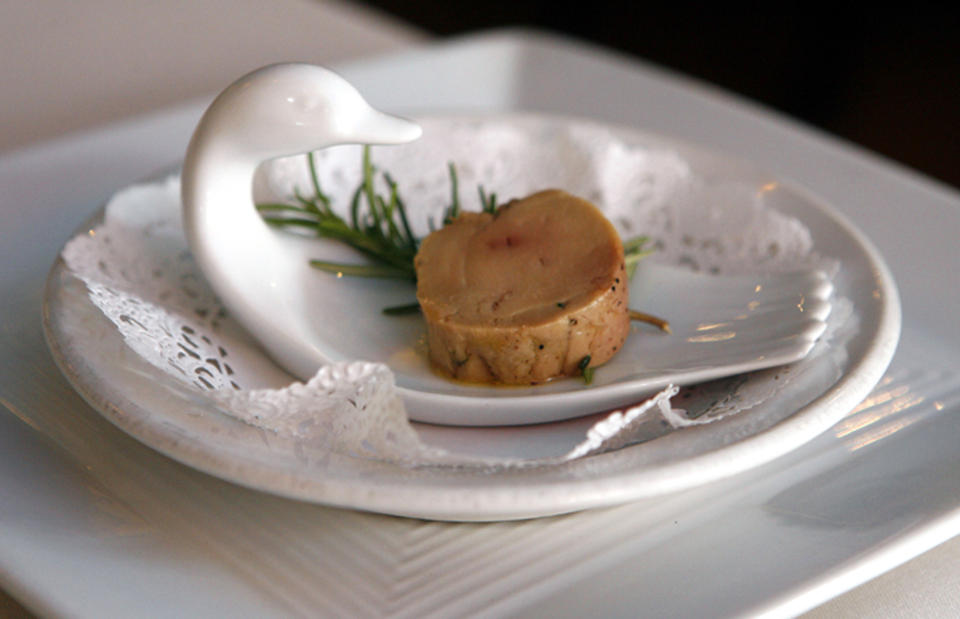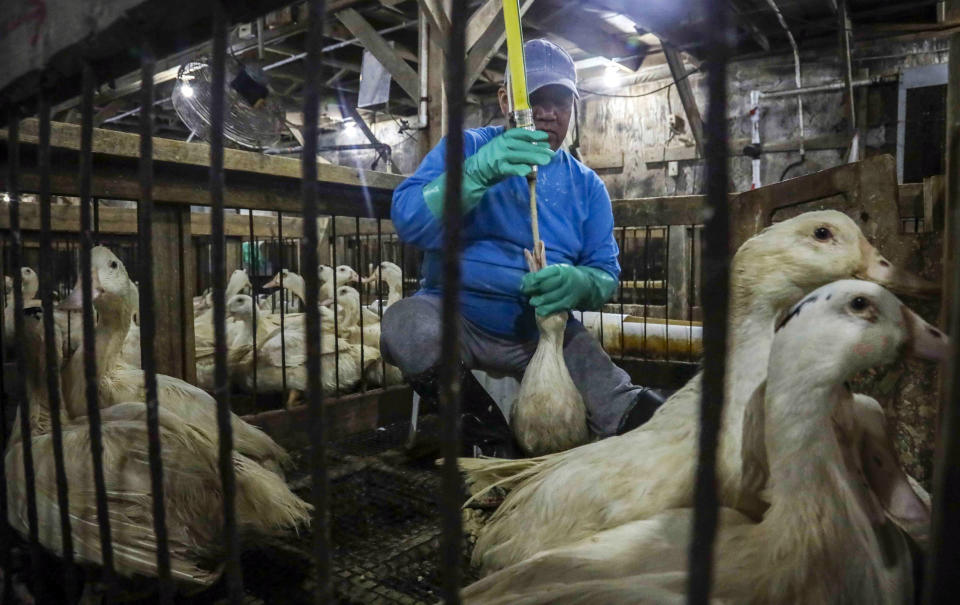Supreme Court won't hear dispute over California law barring sale of foie gras
WASHINGTON (AP) — The Supreme Court said Monday it won't get involved in a dispute over a California animal cruelty law that bars foie gras from being sold in the state, leaving in place a lower court ruling dismissing the case.
Foie gras is made from the enlarged livers of force-fed ducks and geese, and animal welfare groups had supported the law. As is typical, the court did not comment in declining to hear the case, and it was among many the court said Monday it would not hear.
The law doesn’t completely bar Californians from eating foie gras in the state. Courts have ruled that residents can still order foie gras from out-of-state producers and have it sent to them. Restaurants and retailers are still forbidden from selling it or giving it away, however.
The foie gras case had been on hold at the high court while the justices considered a different case involving another California animal cruelty law, that one governing the sale of pork in the state. In that case, the justices earlier this month backed that law, which requires more space for breeding pigs. The pork industry has said the ruling will lead to higher costs nationwide for pork chops and bacon.
California's foie gras law, however, predates the pork law and went into effect in July 2012. It says: “A product may not be sold in California if it is the result of force feeding a bird for the purpose of enlarging the bird’s liver beyond normal size.”
Farmers and producers of poultry products in Canada sued over the law along with New York-based Hudson Valley Foie Gras. The case has been going on since 2012. Most recently, a trial court dismissed the case and a federal appeals court agreed with that outcome. The Supreme Court’s decision not to step in leaves that decision in place.
In a statement released through their attorney, Michael Tenenbaum, the groups that brought the case said they were disappointed both with the way the high court resolved the California pork law case earlier in the month and with the high court's decision not to step in to their case.
“Like farmers across the Nation, we are disappointed with the Supreme Court’s fractured ruling in the pork producers’ case, which allowed California’s politicians to tell people what they can and can’t eat. And we believe the Court should have agreed to add our case to its plate for the upcoming term, since it presents an even more compelling challenge to these nanny-state bans," the statement read.
A spokesperson for California Attorney General Rob Bonta, whose office defended the law, said in an e-mailed statement the office was pleased with the decision.





